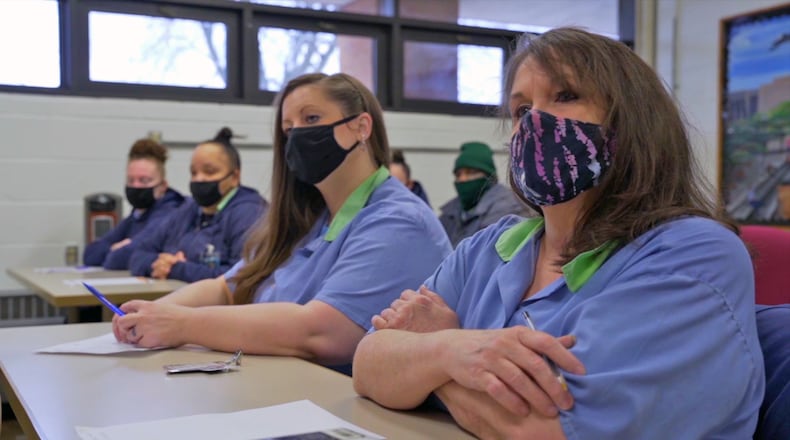The money will also help transition the program to a Pell Grant-based program next year when prison inmates are again eligible for Pell Grants, which help people under specific income levels pay for their college education.
Cheryl Taylor, chief officer of prison education at Sinclair, said there is now more support for programs like these than there was a decade ago.
Taylor said more people know people who have gone to prison. She noted it also costs more to incarcerate someone — $25,000 to $30,000 per year — than it does to educate someone, which costs about $2,000 per year. There’s now bipartisan support for programs like these, she said.
A University of Cincinnati study in 2011-12 showed that people in prisons who participate in educational programs like Sinclair’s, along with programs like mental health and recovery services, are less likely to reoffend.
The program cost about $1 million for the 2022 budget, Taylor said, and is funded by the Ohio Department of Rehabilitations and Corrections, which oversees Ohio prisons.
“I think the more that we see incarcerated individuals as people, the more that people are willing to kind of embrace that and say, and honestly there but the grace of God go I,” Taylor said.
JoEllen Smith, a spokeswoman for the Ohio Department of Rehabilitations and Corrections, said the partnership with Sinclair has been long-standing and the incarcerated population is encouraged to take advantage of programming and education available to the college.
“Most of our incarcerated men and women will be returning to our communities one day, and providing them the opportunity to further their education or learn a valuable job skill gives them hope for a brighter future,” Smith said.
Enrollment in Sinclair’s prison education program more than doubled from 2020 to 2021 and more than 5,000 incarcerated individuals are enrolled in college courses through Sinclair’s AJT Program.
Incarcerated people can choose from 40 associate degree and certificate programs from Sinclair. Each program provides training in areas in which returning citizens can obtain employment upon release. Taylor said the program works with inmates to see what their aptitudes are and they can choose from there.
Some of the programs include culinary management, agribusiness, supply chain management, entrepreneurship and community services. Those who want a bachelor’s degree can do so through Sinclair’s partnerships with Kent State University, Ohio University and Franklin University, who also have programs in Ohio’s prisons.
In 2021, Sinclair’s prison education participants earned over 5,300 certificates and degrees, according to the college. Taylor said the program has been in place since the 1980s and continued in the 1990s when a federal crime bill revoked funding for colleges and universities to have programming in prisons. After many other colleges and universities pulled out, Sinclair stayed.
The program also teaches inmates how to interview, write a resume and talk about their time in prison. Taylor said that is important, because just 35% of people in prisons have a job when they go to prison.
“It’s a total paradigm shift,” said Taylor.
About the Author



